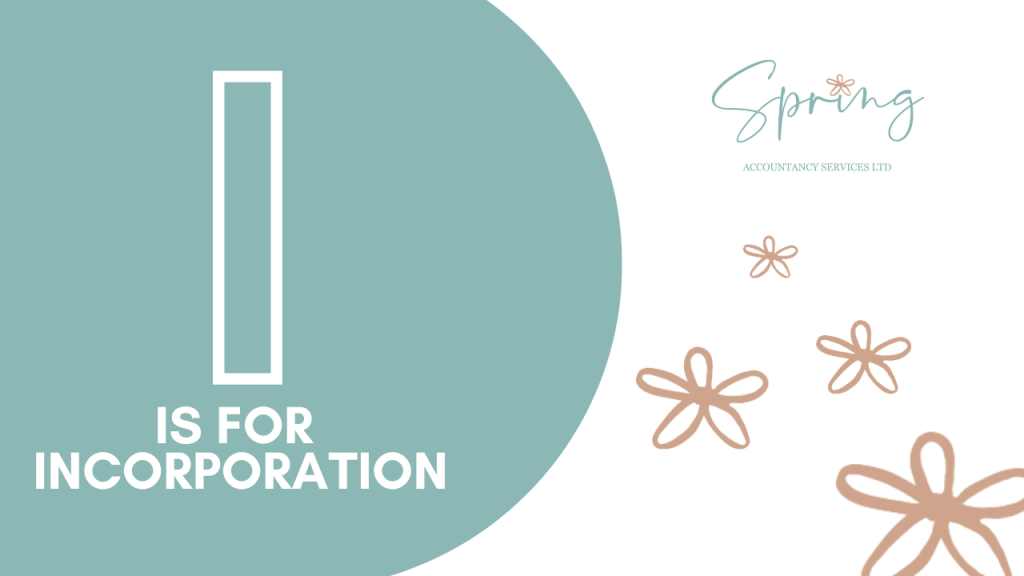I is for Incorporation - A to Z Accountancy Top Tips
Whether an existing sole trader or new start up, clients often ask if they should incorporate their business.
To incorporate a business means that a new or existing business registers as a limited company at Companies House.
It is not compulsory to be a limited company and there are other types of company and business that may suit your situation.
Many people believe that you have to be a limited company to register for VAT and Payroll schemes but this is not the case!
There are many different aspects to take into account and there is no one size fits all solution, so it is important to take your business and personal circumstances into account.
But here are some of the pros and cons for incorporating your business:
Pros:
- Financial Protection The limited company is its own legal entity and therefore separate from the people who run/own it. This means that in most circumstances your personal assets and finances are protected should any unfortunate events happen in the business e.g. sued or financial trouble.
- Tax savings As a shareholder/director you can decide how the profits are distributed and this could potentially have great tax savings. Also, the company can pay into a private pension for you which is a tax-deductible expense.
- Funding Often sole traders/partnerships struggle with getting funding for their business, being a limited company can make this easier.
- Growth and succession planning Transferring ownership can be easier if you are a shareholder. This can help with introducing additional shareholders, retiring, selling or if you pass away.
- Image Often limited companies are seen as more professional and successful businesses which can have its advantages with prospects and suppliers.
Cons:
- Responsibilities There are increased responsibilities Companies must prepare and submit annual accounts to Companies House that comply with the regulations. A Corporation tax return must be submitted to HMRC together with the accounts. A summary of the company information such as directors names and addresses called a Confirmation Statement must be submitted annually A People of significant control register must be submitted regularly too. Any changes in these must be submitted during the year. There are also certain legal responsibilities you hold as a director and failure to comply can result in penalties.
- It can be more costly There is an annual fee for the Confirmation Statement at Companies House although this is only £13. Understandable with the additional work above the accountancy fees will be higher however usually the tax savings outweigh the increase.
- Public information There are no legal requirements for sole traders to make business information publicly available. However, company information such as directors names are on public record online at Companies House. This information is minimal though and if you do not want your address to be shown you can pay to use registered addresses.
If you want a chat to see if your business would benefit from incorporating, then please give me a call.
Flo
